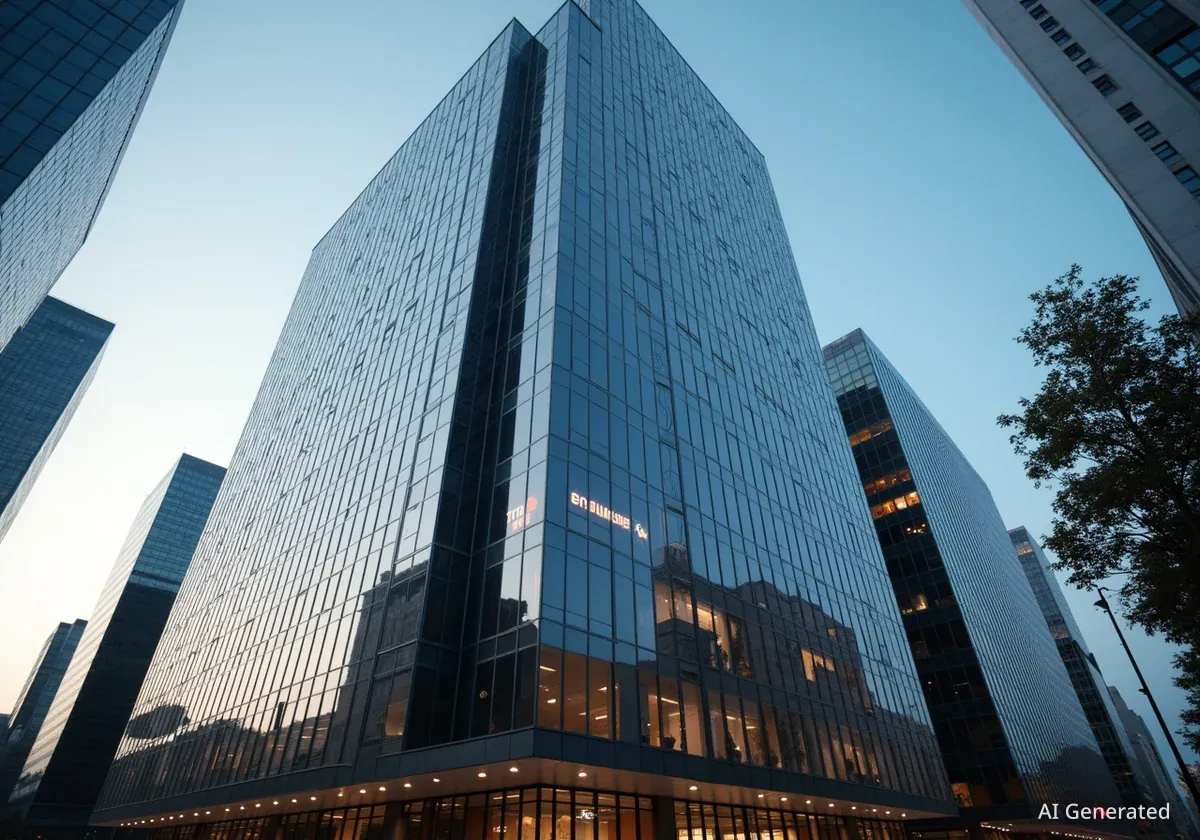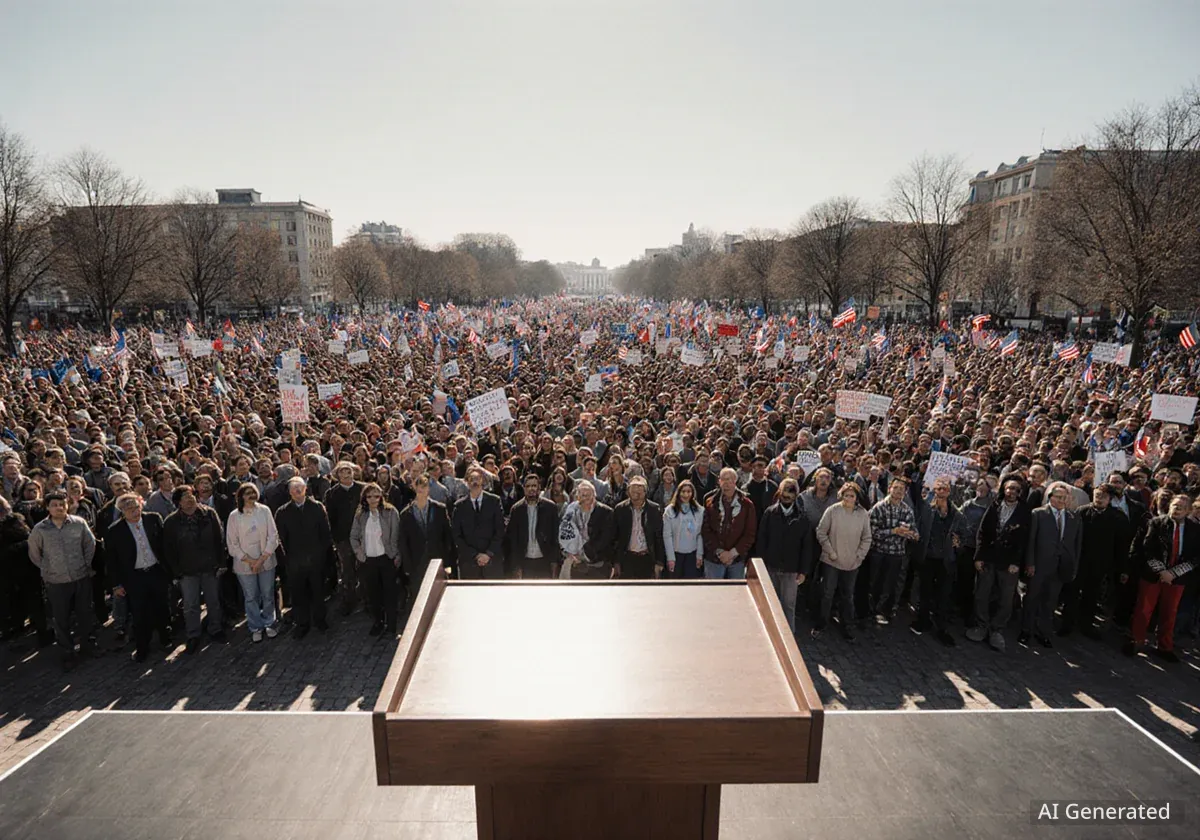The U.S. General Services Administration (GSA) is urgently seeking to lease hundreds of private office spaces across the country to support a significant expansion of Immigration and Customs Enforcement (ICE) operations. According to internal sources, the effort follows a recent government-wide push to increase immigration enforcement, creating logistical challenges for the agency responsible for federal property management.
This rapid procurement effort is taking place just months after a White House advisory group initiated substantial cuts to GSA staff and federal property leases. Now, the agency is tasked with quickly securing facilities for thousands of new ICE officers, often by renegotiating previously terminated contracts at higher costs.
Key Takeaways
- The General Services Administration (GSA) has created an "ICE surge" team to quickly lease office space.
- ICE has urgently requested approximately 300 fully furnished properties by this winter.
- This expansion is funded by a $75 billion allocation from Congress to hire over 10,000 new ICE officers.
- The move reverses earlier government-wide lease cancellations, causing logistical and financial strain within the GSA.
Sudden Demand for Law Enforcement Facilities
In recent weeks, the GSA has established a specialized team to handle what internal employees refer to as an "ICE surge." The team's primary mission is to secure long-term, furnished office space for ICE agents conducting enforcement operations in numerous U.S. cities.
Last week, the GSA's Public Buildings Service issued a public solicitation for "as-is, fully-finished and furnished office space" in 19 different cities. The request specified that each location should accommodate around 70 workstations. The solicitation highlighted an unusually short one-week deadline for bid submissions, underscoring the urgency of the requirement.
Urgent Procurement Details
An internal GSA employee, who requested anonymity to discuss sensitive operations, stated that ICE has formally requested the agency find and lease approximately 300 properties before the end of winter. This rapid expansion is a direct result of increased funding and a mandate to scale up immigration arrests, detentions, and deportations.
Reversing Recent Government Downsizing Efforts
The current push for new facilities presents a stark contrast to recent federal policy. The initiative follows significant downsizing efforts driven by the Department of Government Efficiency (DOGE), an informal White House advisory group. DOGE was responsible for widespread layoffs at the GSA and the termination of a large number of federal leases.
Many of those decisions are now being reversed to meet ICE's needs. GSA employees report being forced to renegotiate leases with landlords who are now demanding significantly higher rates. With its staff reduced to roughly half of its previous size, the agency is facing immense pressure to deliver on these new requirements.
"It's been incredibly chaotic," said one GSA employee familiar with the emergency lease project. Another described the situation as "hypocrisy at its finest," citing the financial inefficiency of canceling leases only to re-establish them months later at a premium.
Funding and Expansion of ICE Operations
The demand for new office space is directly tied to a major expansion of ICE's personnel and operational capacity. This summer, Congress provided ICE with $75 billion in funding to support its enforcement mission. A key goal is to hire more than 10,000 new officers by the end of the year, adding to the agency's starting workforce of about 20,000.
To attract candidates, ICE is offering large signing bonuses, sometimes reaching tens of thousands of dollars, through a streamlined hiring process. This rapid recruitment has drawn criticism from immigration policy experts, who express concern that vetting standards may be compromised.
Scope of Enforcement and Detention
The administration has already promoted large-scale enforcement operations in major cities such as Boston and Chicago. According to the most recent data published by ICE, the number of individuals in immigration detention stands at 58,000. Immigrant rights organizations have raised alarms about potential due process and human rights violations resulting from this accelerated pace of arrests.
Nationwide Search for Suitable Properties
Beyond leasing new private offices, GSA has also been asked to identify existing federally owned or leased properties that could be repurposed for ICE's Enforcement and Removal Operations. A list of target cities shared with NPR includes major metropolitan areas across the country.
Cities Identified for ICE Expansion
- Baltimore, MD
- Philadelphia, PA
- Washington, D.C.
- New York City, NY
- Denver, CO
- Chicago, IL
- Kansas City, MO
- Greensboro, NC
- Fort Myers, FL
In some locations, expansion plans are already underway. For example, a permit application filed in Boise, Idaho, reveals that ICE intends to spend over a million dollars to expand an existing leased office space in the city.
In an official statement, a GSA spokesperson confirmed the agency's role in the initiative. "GSA is proud to support U.S. Immigration and Customs Enforcement (ICE) in fulfilling their mission to protect America," the statement read. "We are working closely with our agency partners to ensure they have the facilities that fit their workforce needs."





